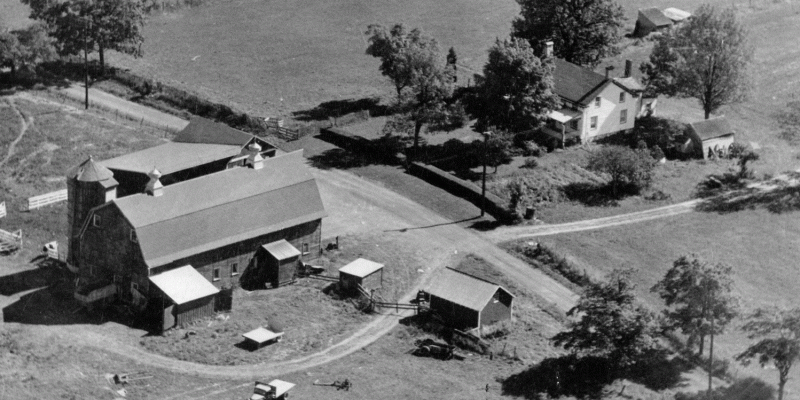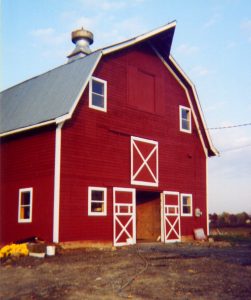
Preamble
In early 2006, a group of local writers and editors launched The Hudson Valley History Project: Gardiner. The project aimed to interview residents who had lived in Gardiner for more than 50 years and write their personal stories. (www.hudsonvalleyhistoryproject.org/stories. The website has been kept alive as an act of kindness, by former Gardiner Town Supervisor Carl Zatz.)
Conceived of by local writer Carol O’Biso, and active for over five years, the project captured the stories of Dot Decker, Lillian Schoonmaker, Bernice Aumick, Vivian Beatty, Joan Decker, Bill Conner, Gladys DuBois, Joe Katz, Betty Moran and Annie O’Neill. O’Biso later became a founding member and General Manager of The Gardiner Gazette.
Gardiner resident Barbara Petruzelli, a former Hudson Valley History Project editor and an avid reader of The Gazette, recently suggested that The Gazette excerpt and serialize some of the stories. We are honored to have the privilege of revisiting these stories. Although previously told, they are as important, poignant and relevant today as when they were first published. In a world full of chaos and trouble, these stories are a touchstone to what is eternally valuable: love, family and community.
We have started, randomly, with the story of Dot Decker.
Dot Decker
Dot Decker lives in a gray raised ranch across from the big red barn on the Decker farm. Once one of four dairy farms on Phillies Bridge Road alone, by the mid 1980s it was one of the last large-scale dairy operations in Gardiner.
Dot’s first question to me is, “Who are you? Do you do this all the time? Go out and investigate people?” and though her strong face is topped by neat swirls of white hair, one of her first statements is delivered in a first sergeant’s parade ground voice; “No pictures!” It is a style that will become familiar during our interview. Close to Dot’s large chair is a tray table with her reading materials, the phone, a glass of water and the TV remote. She suggests that I put my tape recorder on her table but warns,
Dot Decker lives in a gray raised ranch across from the big red barn on the Decker farm. Once one of four dairy farms on Phillies Bridge Road alone, by the mid 1980s it was one of the last large-scale dairy operations in Gardiner.

Dot’s first question to me is, “Who are you? Do you do this all the time? Go out and investigate people?” and though her strong face is topped by neat swirls of white hair, one of her first statements is delivered in a first sergeant’s parade ground voice; “No pictures!” It is a style that will become familiar during our interview. Close to Dot’s large chair is a tray table with her reading materials, the phone, a glass of water and the TV remote. She suggests that I put my tape recorder on her table but warns, “That table has gone over three times in three days, so when I yell, grab your machine.”
Dot Decker, it is quickly becoming clear, has conceded nothing to the infirmities of age; they irritate her, but she gives them short shrift. “Well, I can’t walk, so I have this thing [a walker] . . . I have a nerve problem or something I’m taking medication for. And my fingers are kind of numb at the end.” Her poor hearing she dismisses with, “I don’t understand these ears.”
Dot was born Dorothy Cryer, in Walden, and lived there for the first nineteen years of her life. “C, R, Y, E, R.,” she spells out for me and adds, “I was told we were the only Cryers, the only family in the United States.” Her grandparents lived in Kokomo, Indiana. Her mother had only one brother and Dot says, “People talk about their cousins. I don’t know what they’re talking about.”
Her father, William Cryer, worked in a knife factory by the upper dam in Walden. It was called the New York Knife Company. Dot believes that her grandfather on the Cryer side made knives in Sheffield, England. She says her father knew the knife business from his father, who knew the business from that father. She doesn’t know how many generations it went back, but they all worked in the knife factories.
Asked about her childhood, Dot’s immediate and firm response is, “I was a spoiled brat. That’s all I can think of. I was spoiled. I was an only child. My father always wanted a boy. I knew that. My mother had another baby that died at birth after I was born, and there were no more. My mother and father both doted on me. Whatever I did was okay. When I look back . . . !” She smiles and shakes her head. “Boy, I should have had a few whackins. But I never got ‘em.” To illustrate, she reports having had a favorite cat. She’d put it in the doll’s carriage, hold it down and then walk up to the corner and turn around and come back. “Phew!” she says, “that cat had had enough of that. It wanted to get home.”
When asked what her parents were like, Dot responds with a single word, “lovable,” and says she wishes she had them back. Her father died at sixty-nine while her mother lived to be seventy-nine, and thought she would make it to eighty. “She thought it would be on the tombstone,” Dot says, “eighty—and she thought she was the oldest in the family.” Dot looks off and smiles, “She didn’t know how old I could get. I can’t believe it either.” Dot was born in 1916, and is now 91.
Dot graduated from Walden High School in 1933 and soon after, met Dick Decker, also an only child. “He came up from Gardiner and I got caught up with him and that was it,” she says. Dick Decker was young then, and couldn’t drive at night, but his father had bought a new car, “a Rockne coupe, they called it. Black. Beautiful. Shiny.” When she says this Dot is looking far away, back into a distant time; Studebaker Corporation built the Rockne in 1932 and 1933, and sold it for $585 to $735. That Rockne and a mutual friend, a fellow in Gardiner named Russell Hoffman, were what brought Dot and Dick together. Russell was apparently old enough to drive at night. “Russell got a girl and the four of us got in the coupe and away we went,” Dot says. “I remember going to Orange Lake . . . and Maybrook.
“Tom Moran had that big hotel by the railroad station [in Gardiner]. The summer before we were married, Dick came and brought me . . .
August the fifteenth, which is a big affair in the Catholic Church [Feast of the Assumption]. They had a supper and it was upstairs in Tom Moran’s hall. I don’t know if each person brought something, or just what. Of course there always were the farmers. Those women . . . they cooked! It was so nice. Since I was an only child, I wasn’t used to all this. [Dick told me,] . . . and Dottie, don’t talk about an Italian in Gardiner or an Irishman, ‘cause they’d be related.’ It was upstairs and we could dance. We could do our share of the bar, too!”
Dot soon took Dick to meet her Grandmother Cryer. “He’ll be twenty the day before we get married,” Dot said, and her grandmother exclaimed, ‘He’s not even a man yet!’ ‘We’re going to get married anyway, Grandma,’ Dot insisted. She says Grandmother Cryer didn’t think much of it, but her mother’s mother, Grandmother Vernoye, “took him with open arms. My Grandmother Vernoye was a sweet, lovable person.” Dot thinks a moment. “I guess I’m more like Grandmother Cryer.”
